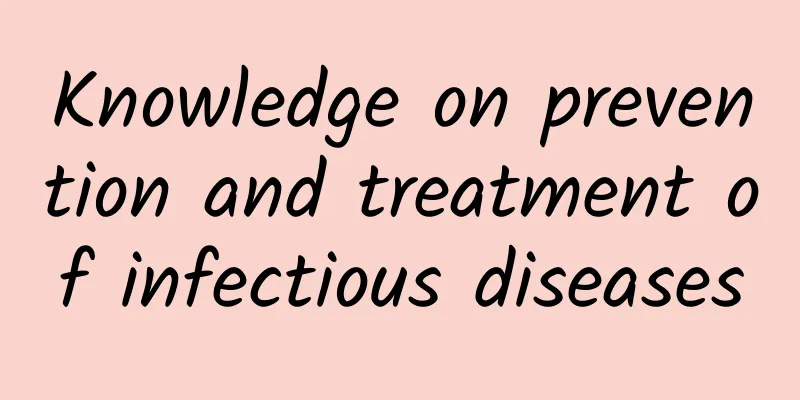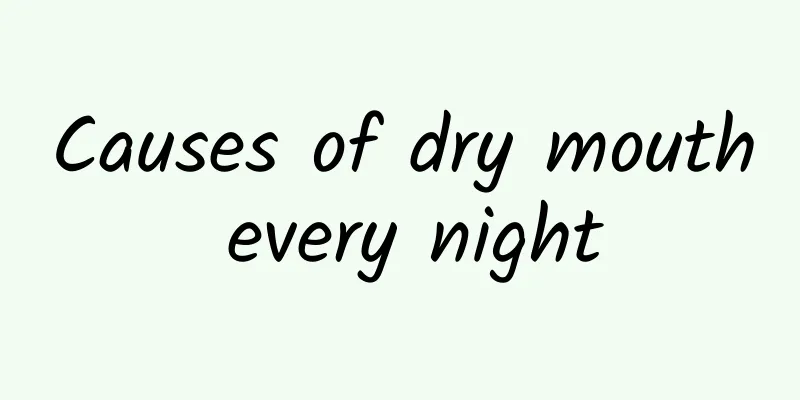Knowledge on prevention and treatment of infectious diseases

|
There are many common diseases in life. When treating some diseases, we need to have a good understanding of the diseases so that we know what kind of treatment method is best. Infectious diseases are also very common. Such diseases are very harmful to human health, and such diseases can also be transmitted to others. So what are infectious diseases? We also need to understand the knowledge of infectious disease prevention and control. There are many types of infectious diseases, and such diseases can be seen everywhere in daily life. For people who do not know about such diseases, they can learn about them through knowledge of infectious disease prevention and control, which is also a good way to prevent such diseases. Knowledge on prevention and treatment of infectious diseases: Infectious diseases generally have four characteristics: pathogenicity, contagiousness, epidemicity and post-infection immunity. At the same time, for an infectious disease to occur or spread among a population, there must be a source of infection, a route of transmission, and the susceptibility of the population. A full understanding of these three links will help us find breakthroughs in preventing, controlling and even eliminating infectious diseases. The source of infection refers to people and (or) animals in which pathogens survive and reproduce and can excrete pathogens. In our country, when individuals and medical and health units discover patients with infectious diseases or suspected patients, they should report them to nearby medical institutions or health and epidemic prevention agencies in a timely manner. This is an important measure for the early detection of infectious diseases. Animal sources of infection, such as poultry and livestock with economic value, should be treated as much as possible and, if necessary, slaughtered and disinfected; if they have no economic value, efforts should be made to eliminate them. Cut off the transmission route: 1. For respiratory infectious diseases, air circulation must be maintained in public places and homes, and air disinfection should be carried out when necessary. 2. For infectious diseases of the digestive tract, focus on taking measures in the aspects of diet management, feces management, water source protection, elimination of the four pests, and personal hygiene. 3. For infectious diseases transmitted by insects, drugs or other measures can be used to prevent, kill and repel insects, and patriotic health campaigns should be vigorously carried out. 4. For some parasitic diseases with complex transmission factors, such as schistosomiasis, a variety of measures should be taken, including eliminating snails, treating patients and sick cattle, managing water sources, managing feces and personal protection. There are non-specific measures and specific measures to improve the immunity of the population. Non-specific measures include participating in physical activities to enhance physical fitness; paying attention to hygiene habits; balanced nutrition; improving living conditions, etc. Through the above introduction, we have a good understanding of the knowledge of infectious disease prevention and control. Therefore, after some infectious diseases occur, they must be treated in time, which will be of great help to the improvement of the disease. Moreover, in daily life, such diseases must also be well prevented so that the disease can be improved. |
>>: What vitamins are missing for peeling hands
Recommend
Treatment of hemiplegia caused by stroke
Stroke is a term used in traditional Chinese medi...
What are the symptoms of implantation in early pregnancy?
For families who want to have children, to get pr...
Short-acting contraceptive pills
China implements a family planning policy, so whe...
What are the recipes for Tongkat Ali wine?
Tongkat Ali is a very precious health product and...
What are the symptoms of hepatitis in women
Hepatitis is a relatively common liver disease, a...
Can bowel cancer be cured?
Intestinal cancer is mainly caused by emergency i...
What causes dark upper eyelids?
There are many reasons for the darkening of the u...
How long does it take to wake up after brain tumor surgery?
Brain tumor is a relatively dangerous tumor becau...
Tell you in one minute whether your baby has worms
I believe everyone has heard of parasites. Common...
What is intermittent strabismus?
Intermittent strabismus refers to a type of strab...
What is the method of Eight-section Brocade of Traditional Chinese Medicine?
In terms of health preservation, people pay more ...
Are polyps in the uterine cavity serious?
If polyps appear in the uterine cavity, it is oft...
Interferon treatment for hepatitis C
Hepatitis C is a liver disease that is extremely ...
What to do if there is oil floating in the stool
If there is oil floating on the stool, you should...
What causes pain along the throat to chest?
Pain from throat to chest may be caused not only ...









